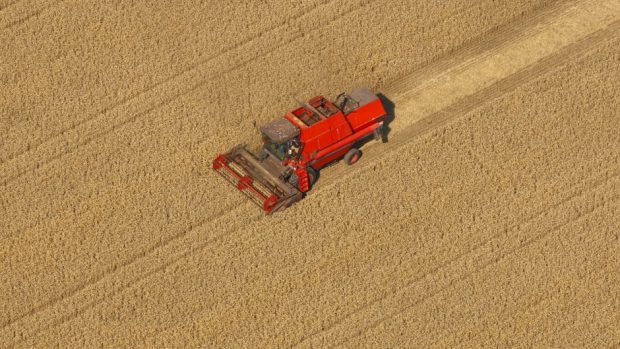The rug of farm subsidies cannot be pulled from under the feet of UK farmers post-Brexit because the British industry is simply too reliant on support, a House of Lords inquiry has been told.
Providing evidence to the EU Energy and Environment Sub-Committee on the implications of Brexit on agriculture, Tim Breitmeyer, the deputy president of the Country Land and Business Association, said funding has to be considered one of the principal challenges for the Government as the agricultural and rural economies move forwards.
“We have to accept the fact that we have lived off a subsidy system for the last 40 years, which was not of our making, but which provides income support,” commented Mr Breitmeyer, a former farm business consultant and arable farmer from East Anglia.
“If you look at the bare facts of the UK’s Total Income from Farming (TIFF), British agriculture would not have been profitable at all over the last 20 years without it [subsidies].
“That, in a time of austerity and at a time when public funds are going to be short, is going to be a real challenge.”
But, despite this inevitable pressure, both Mr Breitmeyer and George Dunn, the chief executive of the Tenant Farmers Association, who also spoke to the committee, stressed Brexit provided a unique opportunity for the UK to have a more tailored and perhaps more relevant food and farming policy.
Mr Dunn said there was also a need to develop a scheme to produce more domestic labour – 85,000 migrant workers were required by industry last year.
He said: “We cannot simply turn off the tap to the EU labour that we have been used to and so heavily reliant on to date but labour supply remains a big concern.”
Mr Dunn also told the committee Brexit would facilitate the creation of agricultural policy that “better fits” but which would also be able to establish a “new consensus”.
This consensus, he said, could reach beyond the internal workings of farming policies to tie in better with external agendas on topics such as animal health, the environment and our place in the wider world in terms of aid and trade.
He said government also had to utilise Brexit as a tool to support the ‘British Brand’, specifically in terms of food and food standards.
Using the Red Tractor scheme as a prime example, he said not only should the Government seek to protect the high standards maintained by UK food producers, but to safeguard the industry.
Public service procurement was a key area, he felt, where the UK should look to become centric on our own food supply chain post-Brexit.
